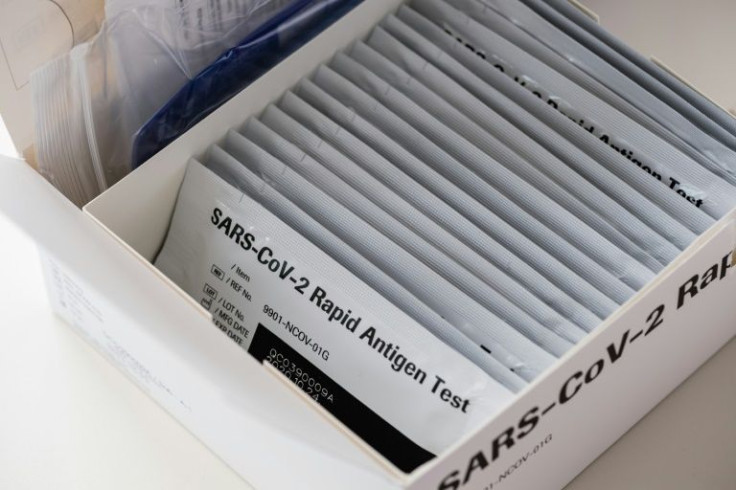Here's Why Your Rapid Test Is Negative Even If You Have COVID-19
KEY POINTS
- Rapid COVID-19 tests, or antigen tests, are unlikely to generate a false positive but are more likely to show a false negative
- False-negative results can happen when a person gets tested outside of the window of peak viral load
- The window could last three days to more than a week depending on how fast a person's system clears the virus
Rapid COVID-19 tests can generate false-negative results because they aren’t that sensitive, according to a medical expert.
Rapid COVID-19 tests, or antigen tests, appear positive if they detect a certain amount of coronavirus — also known as viral load — from a sample taken from a person's body, according to BuzzFeed News.
Dr. Emily Landon, an infectious disease expert, said that the window when viral load is at its peak can vary from person to person and can range from three days to more than a week as people's systems clear the virus at their own pace.
Due to this, it may either take some time for an infected person's result to turn positive or never appear positive if they miss this window or collect their test sample incorrectly, among other things, according to Landon, who is also an associate professor of medicine at the University of Chicago Medicine.
"Rapid tests are definitely not like a pregnancy test where it's going to be positive as long as it's been a few weeks after someone missed a period. It's only going to pick it up when you're at peak infectiousness, and they’re almost never false positive," the doctor explained.
Landon suggested that people who exhibited COVID-19 symptoms but tested negative on a rapid test confirm the result with a PCR test or take another rapid within the next two days.
People who tested positive, meanwhile, need no other confirmation as Landon described rapid tests as "really reliable."
"You don't need to swear at the company and say, 'There's no way I could have COVID'; you definitely have COVID. You need to stay home," the doctor said.
A March 2021 review found that rapid tests gave a correct positive result 72% of the time, but researchers also discovered that the tests' average accuracy rose to 78.3% if they were administered during the first week of symptoms being exhibited.
PCR tests, meanwhile, are much more sensitive compared to rapid tests as they look for the tiniest fragments of coronavirus genetic material, which means a person who has recovered from COVID-19 can still test positive if they have a detectable amount of viral load in their body.
Despite not being as accurate as PCR tests, rapid tests are still usually used over other coronavirus detection methods as they provide results within minutes instead of days and are more portable and less expensive than lab tests, according to Healthline.
The Centers for Disease Control and Prevention (CDC) advised people who tested positive for the coronavirus to isolate for five days regardless of their vaccination status.
Infected people can stop isolating if their symptoms have subsided or they complete five days, but they are still advised to wear masks around other people for an additional five days.
The U.S. has reported a total of 75,285,898 COVID-19 cases and 889,522 virus-related deaths thus far, data provided by The New York Times showed.

© Copyright IBTimes 2025. All rights reserved.





















